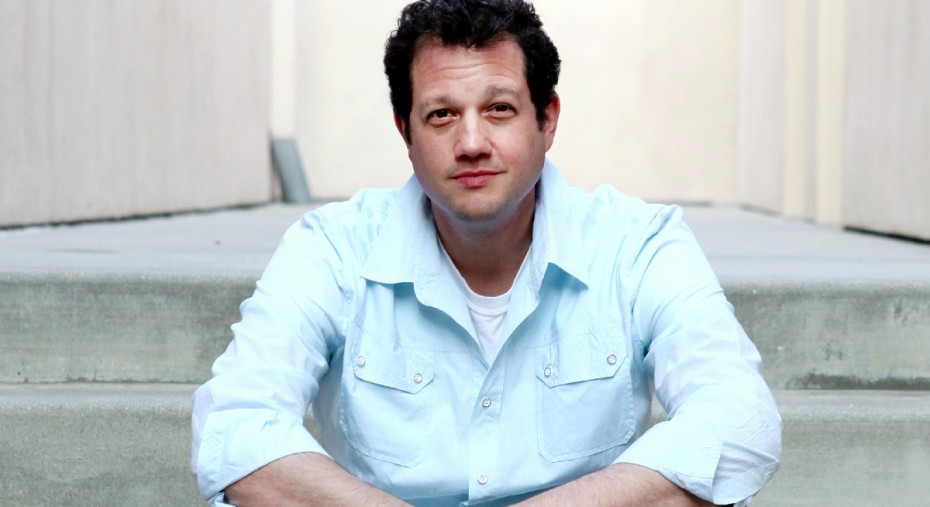Most of the times we don’t even realize it, but while we are watching the latest great movie on the big screen or a mind-blowing series on TV, it isn’t only the images that capture our attention. Would a high-tension thriller be the same without the suspense music that keeps us alert for any foes to show up? Or an animated feature without the delicate soundtrack, which allows us to dream of a fair world at least for a couple of hours?
If you ask Michael Giacchino – Italian American composer of scores for hit films, TV series, and video games – he could answer just by showing off his multiple awards, including a few Grammys, an Emmy, a Golden Globe, and an Academy Award.
Born in New Jersey to an Italian American family – three of his four grandparents were born in Italy and moved to the States when they were young, his father’s side was from Sicily and his mother’s from Abruzzi region – Giacchino had a strong interest in filmmaking and music since a very young age, so one of his teachers in school suggested that he attend the School of Visual Arts in New York City.
After graduating, he was hired by Disney for a position in marketing and soon after was transferred to the offices in Los Angeles, California. In the meantime, he was studying music composition at the Juilliard School first and then at the UCLA. When Disney started their Interactive Division, he was hired as a producer and had the opportunity to compose music for the video games they were developing. Eventually he moved to Dreamworks, where his work was brought to the attention of Steven Spielberg, who signed him up to score The Lost World: Jurassic Park video game, and then Medal of Honor.
Giacchino’s work in video games sparked the interest of J. J. Abrams and thus began their long standing relationship that would lead to scores for the hit TV series Alias and Lost, as well as for Mission Impossible III and Star Trek, and Super 8.
Michael Giacchino’s first major film score was for Pixar’s The Incredibles in 2004, which earned him two Grammy nominations. It also cemented a relationship with Pixar, which would have him scoring Ratatouille, Car 2, and Up (Academy Award winner for Best Original Score in 2010).
This summer, he has three films in theaters: Tomorrowland with George Clooney, Jurassic World, and the delightful animation film Inside Out.
From video games to TV series and big screen movies, what do you think makes your scores so successful? And where do you draw inspiration from?
The musical inspiration for any type of score— whether it is a film, a television show or a video game is the project itself. This type of music composition must go hand in hand with whatever story is being told on the screen, It cannot be done independent of that. The music has to take the audience to an emotional place that the director also wants to go. Of course, there are other elements that help decide what type of instrumentation you use: the geographic location of the film, the time period it takes place in, for example. I have been fortunate to have close working relationships with most of my directors, who are incredibly supportive in the creative process.
After your latest hits the likes of Jurassic World and Inside Out, are you already working on a new project?
I have several projects on the horizon, but nothing I can speak about at the moment. All I can say is that the directors I work with aren’t short on ideas, so I am sure you will be hearing about them soon!
How is your relationship with your Italian heritage?
I am an Italian citizen! Several years ago, our whole family received dual citizenship through my paternal grandfather’s family. My great-grandfather, Michele Giacchino, was born on April 24, 1876 in Caccamo, Sicily. He later emigrated to the US where my grandfather John, was born in Philadelphia in 1905. John married Stella Aiello, who was from Barrafranca, Italy. My maternal grandmother, Louise Vizzarri, was born in Casoli, Italy and moved to the US when she was 7. She later married my grandfather, Anthony Fortunato, who had been born in Casoli as well. Three out of my four grandparents were born in Italy.
We grew up going to Sunday dinners at my grandparents’ home. Homemade spaghetti, “gravy”, meatballs, and pizzelles were all part of my childhood. The tradition of big family gatherings based around food continues today. We travel to my parents’ home in New Jersey every Christmas, and my kids (3 out of 9 grandchildren) help make the ravioli and roll the little meatballs for escarole soup. Time with my family is very important to me. My home is always open to my siblings, my nieces, nephews, and my parents. It is just part of who I am. Even when I am busy working on a film, I make it a point to have time for family.
One of the greatest experiences I have ever had was a Giacchino family excursion to Sicily three summers ago. Seventeen of us went to Caccamo where Michele was born. There was a tremendous welcome party, with everyone from the town there: the mayor, the priest, and the historian. We were given a full tour and a key to the city. One of the most moving moments that day was when we visited the Duomo and stood at the spot where my great-grandfather was baptized with my own father and my children. Afterwards, of course, there was a twelve-course feast in the castle.
I can’t help thinking that my love and passion for music is somehow connected to my Italian heritage. Italy has inspired and nurtured artists for centuries, so it has to be in my DNA…right?




























